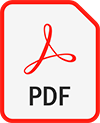Michigan has a rich history of mineral mining dating back to the 19th century. The state’s mining industry has focused primarily on iron, copper, and other metallic minerals, as well as salt, gypsum, and limestone.
Iron mining was the first major mineral industry in Michigan and began in the 1840s. The Upper Peninsula became known as the “Copper Country” because of the significant copper deposits found in the area, which led to the development of copper mining in the region. By the late 1800s, Michigan was one of the leading copper producers in the world.
In addition to copper and iron, Michigan’s mining industry also produced other metallic minerals, including gold, silver, zinc, and lead. Salt was also an important mineral mined in Michigan, with the state becoming one of the largest salt producers in the country.
The mining industry has played an important role in the economic development of Michigan, but it has also had significant environmental and social impacts. The mining of metallic minerals has led to contamination of soil, water, and air, as well as impacts on wildlife and human health. As a result, there have been efforts to regulate and mitigate the impacts of mining in Michigan, while also supporting sustainable mining practices.
Mineral mining in Michigan can have significant impacts on trout and their habitat. Trout are coldwater fish that require clean, cool water with high levels of dissolved oxygen to survive. Mineral mining operations can impact trout populations and their habitat in several ways:
- Water pollution: Mining can result in the release of contaminants into streams and rivers, which can negatively impact water quality and aquatic life. Toxic metals, such as mercury and lead, can accumulate in fish tissue and harm trout populations.
- Habitat destruction: Mining activities, such as blasting and excavation, can alter stream channels and damage aquatic habitat. Trout rely on specific types of habitat, such as deep pools, riffles, and runs, for spawning, feeding, and shelter.
- Sedimentation: Mining can result in increased erosion and sedimentation in streams and rivers, which can cover and fill in spawning areas and reduce the availability of food for trout.
- Groundwater depletion: Mining operations can also deplete groundwater resources, which can reduce stream flow and alter stream temperature, affecting trout habitat.
- Acid mine drainage: In some cases, mining can result in acid mine drainage, which is a chemical reaction between water and minerals that produces acidic water. Acid mine drainage can lower pH levels in streams and rivers, making the water unsuitable for trout and other aquatic life.
To protect trout and their habitat, the Michigan Department of Natural Resources (DNR) has regulations in place to mitigate the impacts of mining on aquatic resources. The DNR works closely with mining companies to ensure compliance with regulations and protect sensitive aquatic habitats. In addition, environmental groups and concerned citizens can advocate for stronger regulations and monitoring to ensure that mining operations do not harm trout populations and their habitat.
- Educate yourself: Learn about the mining industry, including the types of minerals being mined, the mining process, and the environmental and social impacts of mining. The Michigan Department of Environment, Great Lakes, and Energy is a good resource for information on mining regulations and permits.
- Contact your elected representatives: Write letters or emails, call, or meet with your elected officials to express your concerns about mining and ask them to take action to address the issue. You can also attend town hall meetings and other public events to raise awareness of the issue and build community support.
- Join or support local organizations: Find and join local organizations that are working to raise awareness about the impacts of mining on the environment and public health. These groups often organize rallies, petitions, and other actions to advocate for change.
- Advocate for stronger regulations: Lobby for stronger regulations to protect public health and the environment, including more rigorous testing and monitoring of water and air quality, and stricter rules for waste disposal and treatment.
- Participate in public hearings: Attend public hearings and speak out against mining projects that could harm your community. You can also submit written comments to regulatory agencies during the comment period.
- Promote sustainable mining practices: Advocate for sustainable mining practices, such as minimizing waste, reducing energy consumption, and using alternative methods that are less harmful to the environment. You can also support companies that follow sustainable mining practices and avoid those that do not.

